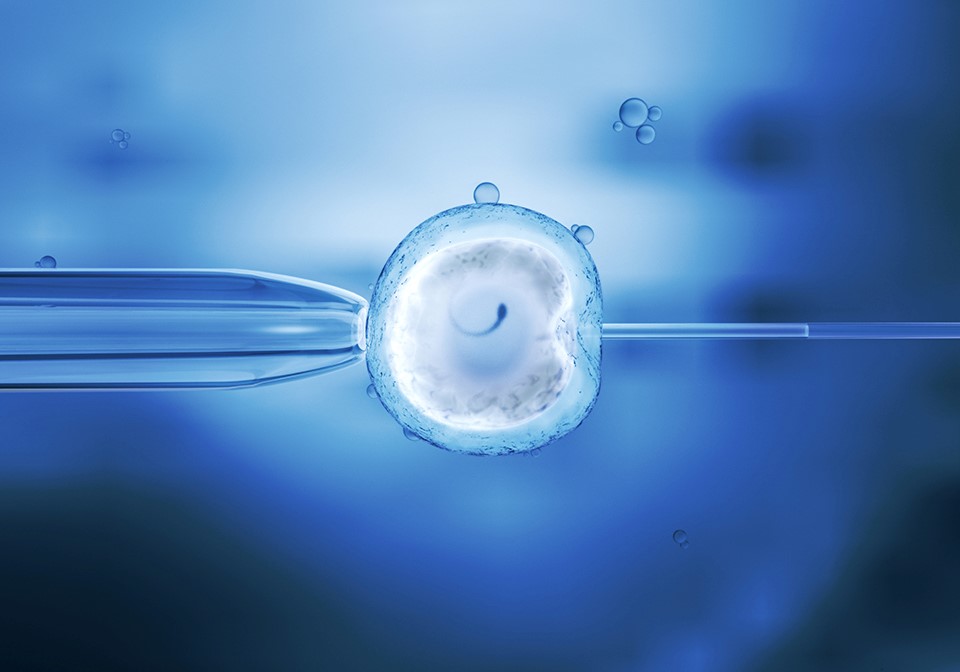Infertility is a common problem, affecting approximately 8-10% of couples; with the problem often stemming from issues related to the male partner and sperm production. This comes as a surprise to many couples, who are often unprepared for this information. Below we outline some of the major causes for male infertility and how these can be diagnosed and addressed by your physician and/or a reproductive specialist.
Q – What is the biggest obstacle when it comes to addressing male infertility factors with patients?
The topic of fertility has certainly become more common in the media in recent years. However, much of this media focuses on the female aspect of having children, as women are having children at more advanced maternal ages (either using their own eggs or through egg donation). Accordingly, many of the couples who seek care at fertility offices will often assume that the reason they have been unable to conceive is due to an issue related to the female partner, when in reality this is only the case in a third of patients. So when an office evaluation reveals that the source of the fertility issues is due to a male component (which is the case 30% of the time), many of the male partners are understandably shocked and perplexed. It will often take some time for an individual to come to terms with this and it is the responsibility of the provider to make sure that the couples’ concerns and questions are adequately addressed. The remainder of patients (approximately 30-40% of cases) we generally categorize as “unexplained” or a combination of male and female factors.
Q – What is the most common form of Male Infertility that fertility specialists see?
The most common form of male factor infertility (MFI) that we see is idiopathic, meaning that there is no clear identifiable factor leading to a decrease in sperm quality. The second most common type of MFI that we see are disorders related to defects in sperm production at the level of the testes. This can be due to a number of diseases. Less common issues are disorders of sperm transport and diseases of the brain that alter hormonal signaling to the testes, thus lowering sperm production.
In order to evaluate what might be contributing to a low or absent sperm count, fertility specialists will generally order several blood tests to determine male hormone levels and to see if there may be a genetic cause for the issue. This will also be accompanied by an exam (oftentimes by a urologist) to assess the size of the testes and if there are any problems with the anatomy of the testes or scrotum. In addition, a detailed history will be taken to assess if the male partner has had any exposure to particular infections (e.g. mumps) or environmental factors (e.g. pesticides) that are known to decrease sperm production. Lastly, an ultrasound of the testes/scrotum may be warranted. Depending on what this evaluation shows, you may be referred to a urologist who specializes in male infertility and is specifically trained in certain surgical procedures, such as sperm extraction, in the event these are recommended for your case.
Related: What you need to know about testosterone replacement therapy
Q – What (if any) dietary interventions do you recommend for Male Infertility? What pharmaceutical and/or dietary supplement protocols are most successful?
There is no definitive diet to follow in cases of MFI. Some studies have shown that eating a more well-balanced diet (with less processed foods) may improve sperm parameters. In general, I recommend that patients avoid foods that are known to be unhealthy, such as soda, sweets and fast food options. In terms of dietary supplements, there have been numerous studies investigating the role of “oxidative stress” on sperm. The body has its own natural antioxidant defense system, but this can be overwhelmed at times, leading to oxidative damage on sperm cells.
Environmental and lifestyle factors may be the reason for the high levels of oxidative stress on the body. Supplementing with certain antioxidants (such as vitamins A & E, L-carnitine, N-acetylcysteine) may improve pregnancy rates but the research has mixed results. You should speak with your provider about whether he/she recommends a particular regimen, if any. You should also speak with him/her about pharmaceutical options, such as clomiphene citrate or aromatase inhibitors. In some, but not all situations, these medications might be helpful to improve the sperm parameters. Treatment is individualized based on each individual’s situation, so what has been recommended for some patients may not necessarily be right for you, and vice versa.
Q – What is/are the most important thing(s) that patients dealing with Male Infertility should know?
Male Infertility is a very common condition- as I mentioned before, male factor accounts for about one-third of couples that are struggling with infertility. If you are faced with the diagnosis of male factor infertility, please know that you are certainly not alone in this regard, and there are numerous support options available to you. Many clinics have a licensed psychologist or therapist who can assist with issues surrounding this diagnosis. There are also support groups for patients; these can be peer-led or professionally-led, depending on your location.
In addition, the field of assisted reproductive technology (ART) has made many advances in recent decades and we are able to overcome many of the obstacles posed by male factor infertility. It is important to seek care with a fertility specialist if you have been found to have a low sperm count and are planning on having children. Some patients are inappropriately counseled on their situation or receive suboptimal care due to a provider’s lack of knowledge in this particular area. Even patients with an extremely low sperm count can conceive using specialized procedures and techniques. A second opinion from another provider can also help in difficult situations.
Q – Any additional information regarding the treatment of Male Infertility factors?
Fertility preservation prior to cancer treatment has become a more popular topic of conversation in recent years, particularly as the techniques for female egg freezing have improved. If you are faced with a diagnosis of cancer, remember to speak with your oncologist about sperm freezing (a.k.a. “sperm cryopreservation”) prior to starting any treatments. Certain treatments are harmful for developing sperm, such as chemotherapy and radiation treatment, and can impair sperm production in the future. Even if you are not currently interested in having children, your physician may recommend that you freeze sperm for future use, in the event that your cancer treatment has a detrimental effect on your fertility.
Original post June 1, 2016
Updated September 27, 2022
If you would like to learn more about GENESIS Fertility New York or are ready to schedule an appointment, please speak with one of our representatives at 929-605-5467.






